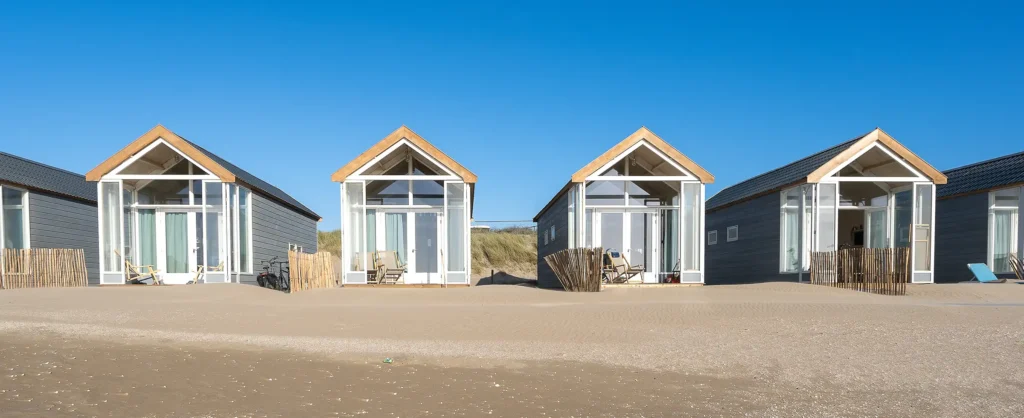Private investors and property developers are poised to see a financial windfall over the next few years – so long as they put the housing market at the top of their agenda. With the UK general election now behind us, and the Labour Party achieving an overwhelming victory, change could be fast approaching for the UK housing market.
A rising rate of rough sleeping and the cost of living crisis continue to threaten the nation’s stability, which makes Labour’s alleged commitment to affordable housebuilding the proverbial glue holding its political future together. But, after 14 years of Conservative government that was punctuated by the average Briton being far less well-off than before the party came to power, industry experts speculate that Labour could be in for an uphill battle.
Will Labour make good on its commitment to building 1.5 million homes within the first five years of its government? And, if so, what role with private investors play in driving this initiative forward?
How Do General Elections Affect the Housing Market?
The General Election may be yesterday’s news, but its impact on the economic climate of the UK and its housing market are anything but. Regardless of Labour’s individual intentions, data from HM Revenue & Customs suggests that house prices tend to rise in the 12 months immediately after an election at a significant average of 4.6%. This is especially true in the case of a significant house majority like the one experienced this year, where prices can rise by 6.9% or more.
According to Rightmove, the past few years have seen a rise in demand for their homes in the months following a general election, with 2019 registering an annual increase of 13% in the December election month. With most buyers having either pushed their sales through pre-election or having waited to see the post-election climate before committing to any major financial decisions, a wave of major moves by property developers and investors could soon hit the once stagnant housing market.
Elsewhere, a survey by Savills shows that 79% of high-income respondents were ambivalent to the prospect of a general election, believing that it would have no impact whatsoever on their commitment to move within the next 12 months. Though the nature of the impact the general election has had on the housing market is still up in the air, a post-election bounce in house prices is customary and expected – a good sign for private investors and property developers looking for short-term wins.
What Went Wrong with Conservative Housebuilding?
As mentioned earlier in this article, the past 14 years have not been kind to the housing market, with the Conservative government having absorbed much of the blame. Since 2008, the UK has suffered from poor economic growth. The Institute for Fiscal Studies (IFS) has provided some insight into the causes behind this grim reality in an extensive report on the UK’s living standards. Since 2009-10, median income growth and the rate at which absolute poverty falls have both declined significantly compared to previous years. And, while the UK was one of the fastest growers for working-age incomes among developed countries before 2007, 2009-2019 saw it fall to a new position as one of the slowest performers, experiencing only 6% growth compared to countries like Germany (16%) and the United States (12%).
While there are many contributors to the UK’s current cost of living crisis, the IFS argues that policy changes that encompass housing affordability among other things would play a critical role in raising living standards while placing much of the blame at the feet of the incumbent Conservative government. Certainly, the government’s inability to meet housebuilding targets coupled with rising mortgage rates has been at least partially responsible for the average cost for a first-time buyer home climbing from 4.6 times a buyer’s earnings in 2010 to 5.2 times their earnings today. The average monthly repayment on a mortgage also rose throughout the Conservative government.
With the landslide victory achieved by Labour just a few short days ago, the party’s profound history of housing shortfalls may have finally caught up to it.
How the Labour Government Could Change Things for Private Investors and Property Developers
Last year, Labour released a report reviewing the private rented sector and setting out the various steps the party would need to take to promote a more stable housing market. The recommendations made included:
- A more holistic approach to reforming the private rented sector that aims to fix all parts of the housing market, such as increasing the supply of social and affordable housing for low-income households.
- Introducing a comprehensive National Landlords Register to enforce standards in housing quality, compliance and property management.
- Outlawing no-fault evictions to protect renters from the threat of rough sleeping.
- Introducing rent stabilisation measures to limit increases that grossly exceed wage growth and the consumer price index.
- Measures to preserve the stock of long-term homes by stopping landlords from moving into other sectors such as short-term and holiday lets.
A New Approach to Property Development
Since laying out these recommendations, Labour has further fleshed out its plans for housebuilding following the general election. A significant part of the party’s efforts will focus on the use of green belt land, otherwise known as land that serves as a natural buffer of greenery between towns.
With sustainability and carbon emissions becoming increasingly important to the collective future of the UK, the idea of building on the green belt has been met with resistance and scepticism. For its part, the Labour Party aims to avoid building on genuine nature spots and heavily regulate building on green belt land. Instead, it will prioritise building on brownfield land such as car parks and wastelands that are currently classified as green belts despite offering no environmental benefits. These types of neglected areas are known as ‘grey belt’ land by the Labour Party.
Where Private Investors Fit In
In meeting its lofty 1.5 million unit housebuilding goal, Labour has committed to a set of golden rules for property developers. In addition to the aforementioned focus on the use of brownfield and grey belt land, all residential property development plans under a Labour government will need to meet a target of 50% affordable housing delivery when the land is released. Likewise, plans will need to boost public services and local infrastructure and improve existing green spaces by making them more accessible to the public.
Although roughly 12% of England constitutes green belt land, research by Knight Frank suggests that over 11,000 previously developed sites that makeup 1% of that green belt could be classified as grey belt land under Labour’s new terms. Developing on these sites could produce between 100,000 and 200,000 new family homes, and this vast new potential for property development has prompted 70% of developers responding to a Knight Frank survey to align their interests with the Labour Party.
Outside of its housebuilding strategy, Labour also aims to provide mortgage guarantees to first-time buyers should it win the general election, driving housing affordability and presenting more opportunities for young people to get on the housing ladder. It has also pledged to heavily support private property developers by working closely with them to achieve its housebuilding mission.
All in all, private investors and property developers stand to see major financial gains from participating in the Labour Party’s housing overhaul. While heavier regulation of the private rented sector could be a cause for concern for some, those who are willing to accept a more people-oriented approach to property development and management will see a golden opportunity in Labour’s new housing market.
Private Property Investment at Concept Capital Group
With the chronic housebuilding shortfall leaving a staggering 657,000 new homes unbuilt in the last five years, there are an estimated 1.2 million households still on the social housing waiting lists. While Labour has promised to reveal new town sites within its first year of power, there is an overwhelming demand for permanent, high-quality social housing still waiting to be met more immediately.
At Concept Capital Group, we manufacture, distribute and manage sophisticated social housing using modern methods of construction. In doing so, we streamline the property development process to get vulnerable and low-income tenants off the social housing waiting list and into permanent homes.
By working with investors like you, we create a more mutually beneficial housing market where our clients can receive fully managed passive income while their tenants enjoy the security and stability of our properties.
For more information on investing with us, book a call with our team today.













